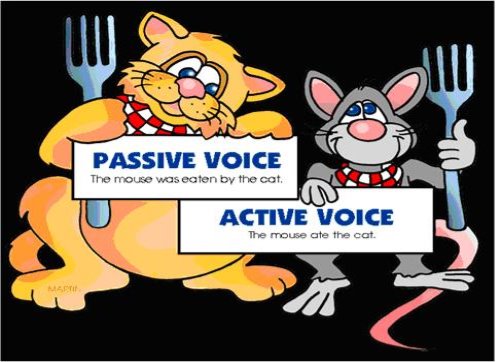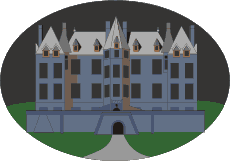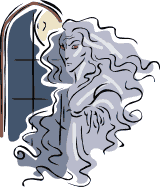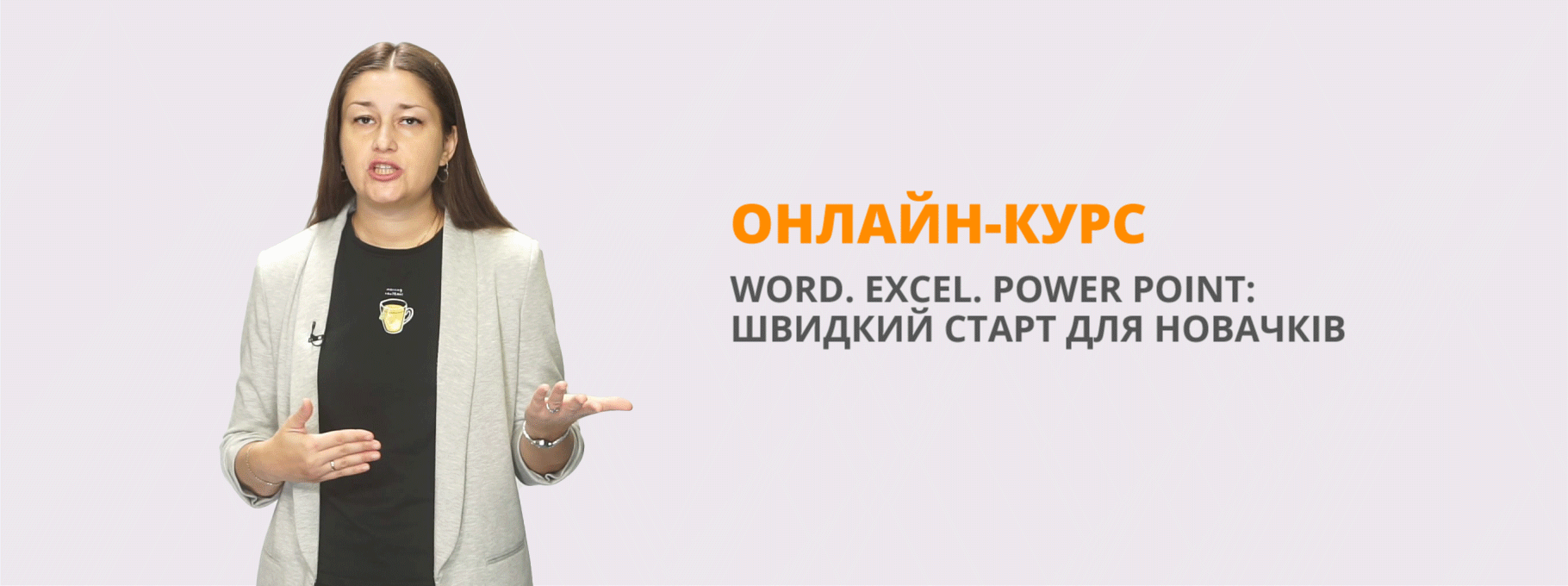Урок "Passive voice"
Тема: PASSIVE VOICE
Мета уроку:
Практична: - активізація граматичних навичок по темі «Пасивний стан» (Passive voice).
- розвиток вмінь монологічної бесіди;
- розвиток вмінь ознайомлюючого читання;
Розвиваюча:- розвивати увагу, сприйняття, пам'ять, пізнавальний інтерес, логічне мислення, комунікативні здібності, розвивати студента як суб'єкт навчальної діяльності.
Виховна: - виховувати культуру спілкування на уроці та у повсякденному житті;
- виховувати толерантні якості у процесі роботи в групах, розширювати кругозір.
Практичні завдання уроку:
- формування граматичних навичок читання та говоріння;
- вдосконалення навичок перекладу;
Тип уроку: - введення і відпрацювання нового матеріалу;
Методи навчання: репродуктивний, частково-пошуковий
Форми організації пізнавальної діяльності: фронтальна, індивідуальна, групова.
Оснащення уроку: комп'ютер, мультимедійний проектор.
Розробила: Курило Людмила Сергіївна
Хід уроку
1. Вступне слово вчителя:
- привітання:
- введення до іншомовної атмосфери;
- Good morning, dear students. I’m glad to see you, sit down please. How are you today?
- Good morning, teacher. We are fine.
- Who is absent today?
- Absent today is/ are …
- What date is it today? Who can go to the blackboard and write today's date?
- Today is the 27 th of February.
- And the others write the date in your notebook.
2. Пояснення нового граматичного матеріалу:
- We begin to study a new topic “Passive Voice”
- Our task is to learn how to make sentences in P.V.
- Let’s start!!!
Стан – це форма дієслова, яка показує: сам предмет чи особу яка виконує дію (активний стан), або дія відбувається над предметом чи особою (пасивний стан).
- Ann painted a picture yesterday. (Active voice)
- The picture was painted by Ann yesterday. (Passive voice)
Пасивний стан дієслова утворюється за допомогою допоміжного дієслова ”TO BE” та PARTISIPLE II (дієприкметник минулого часу), дієслово + - ed (або третя колонка таблиці неправильних дієслів).

Таблиця відмінювання дієслів в пасивному стані
|
Вид Время |
Indefinite Неозначений |
Continuous Тривалий |
Perfect Доконаний |
Perfect Continuous |
|
|
to be (am, is, are, was, were, ...) + III-я форма (-ed форма) |
|
||
|
Present теперішній |
I + am III he, she, it + is III we, you, they + are III |
I + am being III he, she, it + is being III we, you, they + are being III |
I, we, you, they + have been III he, she, it + has been III |
----- |
|
Приклад: |
I am asked |
I am being asked |
I have been asked |
|
|
Past минулий |
I, he, she, it + was III we, you, they + were III |
I, he, she, it + was being III we, you, they + were being III |
I, he, she, it, we, you, they + had been III |
----- |
|
Приклад: |
I was asked |
I was being asked |
I had been asked |
|
|
Future майбутній |
I, we, he, she, it, you, they + will be III |
----- |
I, we, he, she, it, you, they + will have been III |
----- |
|
Приклад: |
I shall be asked |
|
I shall have been asked |
|
Як працювати з пасивним станом, потрібно:
- прочитати та перекласти речення на українську мову;
- знайти в реченні додаток;
- переказати речення на українській мові, зробивши додаток підметом;
- визначити граматичний час дієслова та вибрати потрібну форму дієслова ”TO BE”. Скласти речення в пасивному стані.
- якщо потрібна інформація, ким або за допомогою чого була виконана дія, використовуйте прийменники by (ким) чи with (чим).
Transform the sentences. Use the Passive voice.
- My mother washes our clothes on Saturdays.
- The headmaster sent a letter.
- Our children will organize the Christmas party next Friday.
- Mary trains the dogs in the garden.
- Mrs. Simpson has cleaned all the windows today.
- Frank has packed the suitcase.
- Bob paid the bills.
- The doctor will examine her tomorrow.
- My granny paints the door every year.
- They built the theater in 1970.
Одній конструкції в активному стані можуть відповідати дві в пасивному так як пряме і непряме доповнення можуть стати підметами з дієсловами:
To pay платити to offer пропонувати
To sand відсилати to promise обіцяти
To give давати to show показувати
To tell розповідати to leave залишати
Наприклад:
Him не пряме доповнення (кому?)
Active voice Passive voice
The teacher gave him a book. A book was given to him.
Вчитель дав йому книгу. Книга була дана йому.
He was given a book.
Йому дали книгу.
I was phoned yesterday. Мені зателефонували вчора.
We were shown a film. Нам показали фільм.
You were sent a letter. Тобі відправили листа.
They were told a story. Їм розповіли історію.
Kate was offered help. Каті запропонували допомогу.
В пасивній конструкції з прийменниковим доповненням прийменник зберігає своє місце після дієслова, наприклад:
To laugh at сміятись над to send for відправляти за
To wait for чекати (на) to look for шукати
To refer to посилатись на to listen to слухати
- Somebody laughs at my sister.
- We waited for the librarian.
- Scientists often refer to this book.
- Everybody will listen to the lecture.
- Somebody sent for Mike’s parents.
- They look for this game everywhere.
Особливості вживання:
- Пасивний стан може вживатися в поєднанні з модальними дієсловами (can, must, should, may і інш.)
Модальне дієслово + be/have been + V3
The letter should be written today. – Лист повинен бути написаний сьогодні.
The news may have been reported. — Про новини, можливо, вже повідомляли.
3. Виконання граматичних вправ на закріплення:
EX: 1. Transform the sentences. Use the Passive voice:
1. They understand Spanish.
2. My friend bought a new car.
3. John cleaned the bathroom.
4. The teacher closes the window.
5. The girls can play tennis.
EX: 2. Make a proposal in the passive voice:
E. g.: 10 schools/ build/last year. – 10 schools were built last year. (10 школ было построено в прошлом году.)
1. The museum/open/in 2005. Музей був відкритий в 2005 р.
2. 3000 books/sell/every week. 3000 книг продається щотижня.
3. The parcel/deliver/tomorrow morning. Посилку доставлять завтра вранці.
4. The flight/not cancel/because of the rain. Рейс не скасували через дощ.
5. This wine/not produce/next year. Це вино не буде вироблятися в наступному році.
6. Paper/make/from wood. Папір виготовляють з дерева.
7. Coffee/not grow/in Russia. Кава не вирощують в Україні.
8. The New Year tree/decorate/last night. Ялинку прикрасили вчора ввечері.
9. The airport/surround/by soldiers. Аеропорт оточений солдатами.
10. I/tell/to keep silent. Мені сказали мовчати.
EX: 3. Put the verbs in brackets in the form of the passive voice Present Simple.
E. g.: Their first child … in Paris. (bring up) – Their first child is brought up in Paris. (Их первый ребенок воспитывается в Париже.)
1. Ice hockey … in Canada. (play) У хокей на льоду грають в Канаді.
2. The money … in the safe. (keep) Гроші зберігаються в сейфі.
3. Chicken sandwiches … for children. (make) Сендвічі з куркою готують для дітей.
4. The washing-machine … every day. (use) Пральна машина використовується кожен день.
5. All his holidays … in the countryside. (spend) Усі його відпустки проводяться в сільській місцевості.
EX: 4. Put the verbs in brackets in the form of the passive voice Past Simple.
E. g.: Your credit card … on the floor. (find) – Your credit card was found on the floor. Твоя кредитна картка була знайдена на підлозі.
1. The monuments … in 1943. (ruin) Пам'ятники були зруйновані в 1943.
2. A big bunch of flowers … for her birthday. (send) Великий букет квітів був посланий до її Дня народження.
3. The novel «War and peace» … by Leo Tolstoy. (write) Роман «Війна і мир» був написаний Львом Толстим.
4. The famous painting «Sunflowers» … by Van Gogh. (paint) Знаменита картина «Соняшники» була написана Ван Гогом.
5. The coats … in the wardrobe. (leave) Пальто були залишені в гардеробі.
EX: 5. Put the verbs in brackets in the form of the passive voice Present Perfect.
- E. g.: The tickets … . (sell) – The tickets have been sold. Квитки продані.
1. He … after a fight in a nightclub. (arrest) Його заарештували після бійки в нічному клубі.
2. My son … the Medal of courage. (award) Мого сина нагородили Медаллю за мужність.
3. Your tea and biscuits … . (serve) Ваші чай і печиво подані.
4. Thousands of new cars … this year. (manufacture) Тисячі нових автомобілів випущені в цьому році.
5. Our flight … . (delay) Наш рейс відклали.
EX: 6. Put the verbs in brackets in the right form of the passive voice.
The roads (cover) with the snow. – Дороги вкриті снігом.
Chocolate (make) from cocoa. – Шоколад виготовляється з какао.
The Pyramids (build) in Egypt. – Піраміди були побудовані в Єгипті.
This coat (buy) four years ago. – Це пальто було куплено 4 роки тому.
The stadium (open) next month. – Стадіон буде відкритий в наступному місяці.
Your parents (invite) to a meeting. - Твої батьки будуть запрошені на збори.
Where is your car? – It (mend) at the moment. – Де твоя машина? - В даний момент вона ремонтується.
The books already (pack). – Книги вже упаковані.
The castle can (see) from a long distance. – Замок можна побачити здалеку.
The guests must (meet) at noon. – Гості повинні бути зустрінуті опівдні.
EX: 7. Make sentences negative and translate into Ukrainian:
Ann was bitten by a homeless dog.
The zoo is being reconstructed at the moment.
The luggage must be checked at the customs.
Souvenirs are sold everywhere.
The job will be finished at 3 o’clock.
EX: 8. Find in the text sentences which used the passive voice:
The Canterville Ghost
Chapter I
When the American, Mr Otis, bought Canterville Castle, everyone told him that this was very foolish, as the place was haunted. But Mr Otis answered, “I come from a modern country, where we have everything that money can buy. And if there were such a thing as a ghost in Europe, we would have it at home in one of our museums.”
A few weeks later, on a lovely July evening, Mr Otis, his wife and their children, Washington, Virginia and the twins, went down to their new home. When they entered the avenue of Canterville Castle, the sky suddenly became dark and a spooky stillness was in the air.
 Mrs Umney, the housekeeper, led them into the library of the castle, where they sat down and began to look around. Suddenly, Mrs Otis saw a red stain on the floor just by the fireplace and said to Mrs Umney, “I am afraid something has been spilt there.”
Mrs Umney, the housekeeper, led them into the library of the castle, where they sat down and began to look around. Suddenly, Mrs Otis saw a red stain on the floor just by the fireplace and said to Mrs Umney, “I am afraid something has been spilt there.”
“Yes, madam,” said the old housekeeper in a low voice, “blood has been spilt on that spot.”
“How terrible,” said Mrs Otis; “I don't want any blood-stains in my sitting-room. It must be removed at once.”
The old woman smiled and answered, “It is the blood of Lady Eleanore de Canterville, who was murdered on that spot by her husband, Sir Simon de Canterville, in 1575. Sir Simon disappeared seven years later. His body has never been found, but his ghost still haunts the Castle. The blood-stain is a tourist attraction now and it cannot be removed.”
“That is all nonsense,” said Washington, the eldest son of the Otis family, “stain remover will clean it up in no time,” and he took a bottle of stain remover out of his pocket and cleaned the spot. But as soon as the blood-stain had disappeared, a terrible flash of lightning lit up the room and a fearful peal of thunder made the whole building shake.
Chapter II
There was a horrible storm that night, but apart from that nothing scary happened. The next morning, however, when the family came down to breakfast, they found the terrible stain of blood once again on the floor. Washington cleaned it a second time, but the second morning it appeared again. The third morning it was there, too, although the library had been locked up at night by Mr Otis himself.
 The following night, all doubts about the existence of the ghost were finally removed forever. At eleven o'clock the family went to bed and some time after, Mr Otis was awakened by a strange noise in the corridor, outside his room. It sounded like the clank of metal, and it came nearer every moment. Mr Otis got up and looked at the time. It was exactly one o'clock. So Mr Otis put on his slippers, went to the door and opened it. There, right in front of him, stood the ghost - his eyes were as red as burning coals; long grey hair fell over his shoulders and from his wrists and ankles hung heavy chains.
The following night, all doubts about the existence of the ghost were finally removed forever. At eleven o'clock the family went to bed and some time after, Mr Otis was awakened by a strange noise in the corridor, outside his room. It sounded like the clank of metal, and it came nearer every moment. Mr Otis got up and looked at the time. It was exactly one o'clock. So Mr Otis put on his slippers, went to the door and opened it. There, right in front of him, stood the ghost - his eyes were as red as burning coals; long grey hair fell over his shoulders and from his wrists and ankles hung heavy chains.
“My dear Sir,” said Mr Otis, “you must oil those chains. It's impossible to sleep with such a noise going on outside the bedrooms. I have therefore brought you this bottle of lubricator, and I will be happy to supply you with more if you require it.” With these words Mr Otis laid the bottle down, closed his door and went back to bed.
Shocked, the Canterville ghost stood quite motionless for a moment, but then he growled angrily. Just at this moment, the twins appeared on the corridor and threw a large pillow at him! The ghost hastily escaped through the wall, and the house became quiet again.
When the ghost reached his small secret chamber, he took a deep breath. No ghosts in history had ever been treated in this manner!
4. Повторення та закріплення вивченого матеріалу.
5. Підбиття підсумків уроку, виставлення оцінок за урок.
6. Пояснення домашнього завдання.
1

про публікацію авторської розробки
Додати розробку
